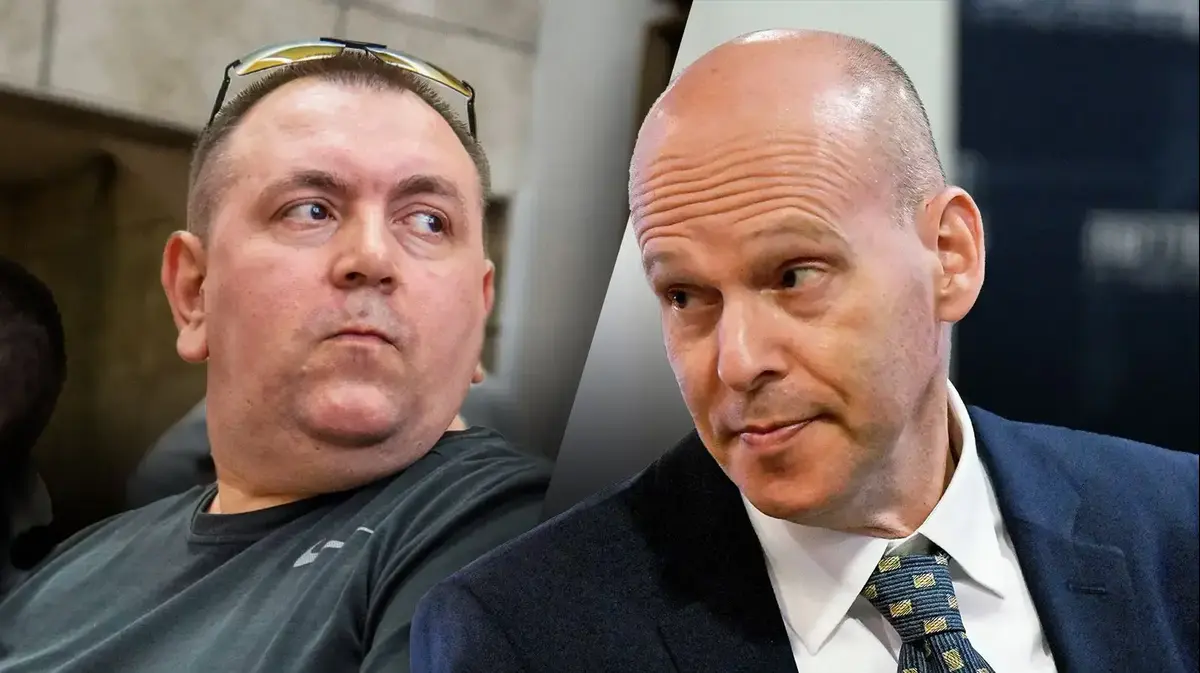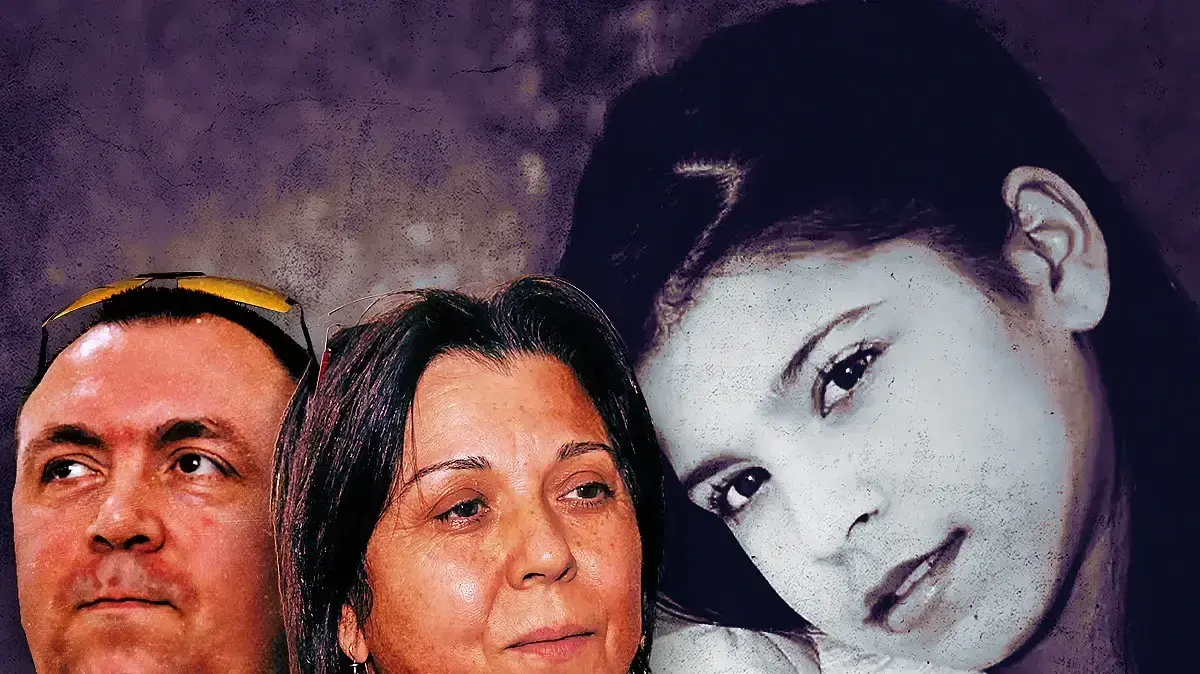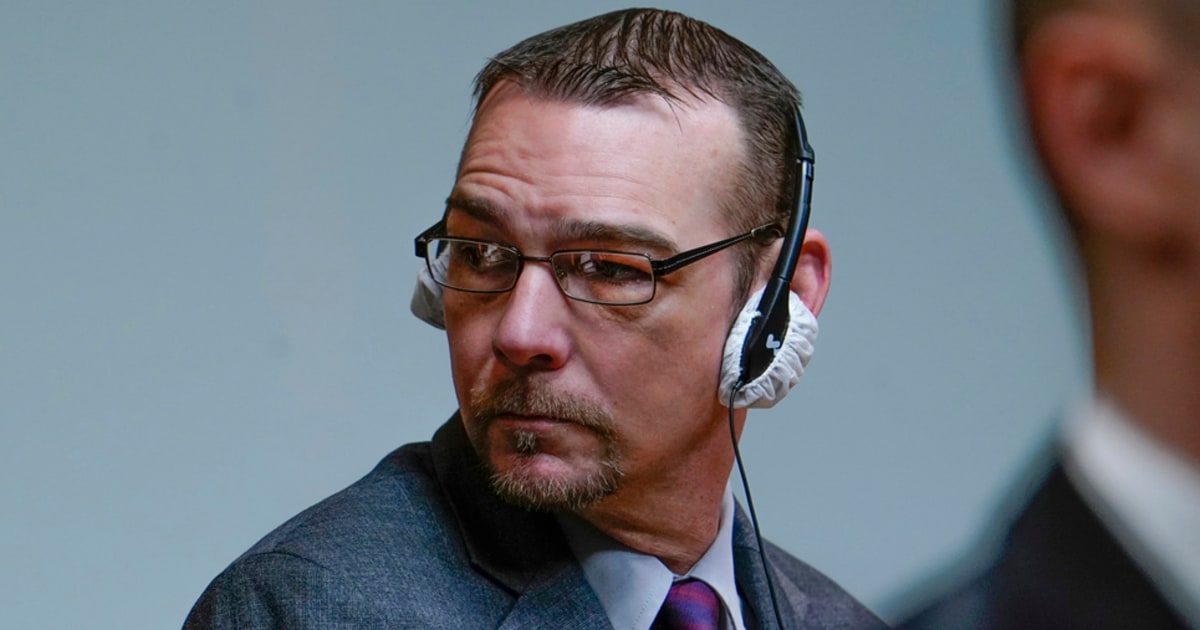Video: Nazareth District Court acquits Roman Zadorov of the murder of Tair Rada by a majority of two to one (Judiciary Spokesperson's Office)
17 years ended in three paragraphs. For 17 years, the State Prosecutor's Office insisted that Roman Zadorov was the one who murdered Tair Rada in the bathroom of the Nofey Golan School in Katzrin in 2006. For 17 years, she moved with the case from court to court, from district court to supreme, back to district court, and back to the Supreme Court, and in all these rounds she managed to convince the judges that Zadorov was the man who murdered Rada.
Even after the decision to retrial, the State Prosecutor's Office continued to believe in the case and manage it, because everyone who touched the case from the State Attorney's Office was sure that compared to other cases he handled, it was an easy case, a case in which the charges and convictions against Zadorov were perfectly justified.
During all these years, this case has become a flagship case on both sides: on the one hand, an unprecedented media campaign was carried out for Zadorov's release, combining the arms of mainstream media and social networks. On the other hand, the State Prosecutor's Office, which was and still is convinced of the strength of the evidence against Zadorov, allowed itself media moves that it did not allow itself in any other case, such as uploading materials from Zadorov's reconstruction and confessions on the Justice Ministry website.
In order to conduct the retrial, State Attorney Amit Isman established an elite A-team of outstanding prosecutors from several districts - Tel Aviv, North, Haifa. Attorneys Wiam Kablawi, Meital Chen-Rosenfeld, Moshe Marciano, Sharon Har Zion and Bnei Moshe had not touched the case before, came to it as a blank slate. They did know how loaded this case was, so before deciding whether to enter it or not, they studied it thoroughly. After diving into it, everyone became convinced that Zadorov was the murderer.
The trial ended in a very predictable acquittal. More than a year ago, at the stage of the defense affair, I began to attend many of the hearings. The climax of the defense phase was, of course, Zadorov's testimony. Watching what was happening in the hall left no room for confusion. Almost all of the comments of two of the three judges (the third was quiet) were against the prosecution. This was strange because, generally, judges challenge the prosecution witnesses at the prosecution stage, and at the defense stage the defense witnesses. In practice, with the exception of a few comments to Zadorov during his testimony, the judges mainly challenged the prosecutor. More than once this challenge has crossed borders. The judges disrupted prosecutor Chen Rosenfeld's interrogations several times by putting words in the witness's mouth.
Judge Asher Kula, head of the panel of judges in Zadorov's retrial (Photo: Reuven Castro)
The judge, whose voice came into extreme and puzzling confrontations with the State Prosecutor's Office, spoke during the trial with the spokesman of the Ministry of Justice in order to protest imaginary leaks (in all my years of work I do not remember a judge contacting the State Attorney's spokesman), and even came to the point of presenting the State Attorney's Office with an eccentric choice – to declare its confidence in him, or alternatively to ask for his disqualification.
All this before I even mentioned the judge's clear statements that if the prosecution does not bring to court the people to whom the traces in the bathroom belong, Zadorov will be acquitted, as well as the inconceivable request at the beginning of the proceeding to withdraw the indictment. The acquittal, then, was written in white sanctification letters on the walls of the courtroom, and this predictable result was written here in real time more than a year ago. The undersigned did not possess prophetic abilities, there was simply no other way to interpret what was happening in the hall. What was not expected was the unequivocal minority opinion of Justice Tamar Nissim Shai. Almost everything her bandmates determined, she determined the opposite. There was not a single significant factual finding agreed upon. I don't remember a case with such dramatic and extreme gaps between the judges.
For 45 days we were tense. Will the State Attorney decide to appeal the acquittal? After 13 judges heard this case, 10 of whom thought that Zadorov was the murderer, shouldn't the Supreme Court write the last virtue? Maybe even in an expanded panel of 5 judges? Importantly, the hundreds of pages of the decision are not based on validating the new evidence that led to the retrial. The judges do not write in their decision that it was the new evidence that tipped the scales for an acquittal. Not at all. In their rulings, Justices Kola and Sarfati dismantled all the supporting pillars of the previous rulings, first and foremost the confession to the informant, the reconstruction, and the confession to the police. The judges regarded these confessions as insignificant recitations. Simple as that.
State Prosecutor Amit Isman (Photo: Walla!, Shlomi Gabay)
In other words, Kola and Sarfati determine that the judges (note the length of the list): Yitzhak Cohen (district), Haim Galpaz (district), Esther Hellman (district), Edna Arbel (supreme), Zvi Zilbertal (supreme), Yoram Danziger (supreme), Benjamin Arbel (district), Yitzhak Amit (supreme) - 8 judges - reached an erroneous, negligent, offensive result. Again, don't be fooled, the change is not because of the new evidence. Cole and Sarfati rule that eight judges wrote legal nonsense.
In other words, we are in a bizarre situation in which two district judges were de facto appellate courts for four district judges and four supreme court judges. If someone lingered for a second on the name Danziger, then no, I wasn't wrong. Judge Yoram Danziger, who acquitted Zadorov, also ruled in his ruling that he was a step away from convicting him and refrained from doing so in light of the traces of blood in the bathroom that did not reveal to whom they belonged. Had it not been for these traces, Danziger would have convicted Zadorov based on Zadorov's confessions to the informer and the evidence supporting the confession. So now the question arises: After two judges ruled that eight judges had been wrong for 17 years, was it wrong to let the Supreme Court decide whether Zadorov was guilty or innocent? Maybe even in an extended lineup? So Isman thought not.
After 17 years, Isman decided to end this never-ending affair with three laconic and flimsy paragraphs that insult everyone who followed this affair seriously, three paragraphs that mock and curse the organization that Isman heads, three paragraphs that degrade all the attorneys who appeared in the courts in this case all these years, three paragraphs that loom over the public that follows this affair, It doesn't matter from which side, since they assume that in any case "the public doesn't understand evidence" (a sentence I was told by a source in the editorial board).
Although he acquitted, he stressed that he was a step away from convicting. Retired Supreme Court Justice Yoram Danziger (Photo: Yoav Dudkevich)
An insult to intelligence
In the first paragraph, Isman announces the decision, in the second paragraph he tells us who he consulted, but God forbid he does not tell us about those who disagreed with him, even though there were certainly some in the team that handled the case, and in the third paragraph he explains that the decision stems from "the legal rule according to which the appellate court does not tend to interfere with factual findings determined in the lowest court, as well as in determinations concerning the credibility of witnesses or in the decision to prefer the testimony of one expert over another."
This paragraph is an insult to the intelligence of any jurist. The rule is indeed known and true, of course, but in this case you have to be blind to automatically adopt it. First, what underlies Isman's minimalist explanation? I mentioned earlier Danziger, who exonerated Zadorov based on the traces of blood. The new evidence that led to the retrial reinforced Danziger's doubts that if the blood could not have flowed for more than an hour, the prosecution's assumption that the traces could have belonged to one of the body rescuers, who arrived a few hours later, could not be true.
We will not go into the strength of the new evidence here, because, as stated, it is not central to Zadorov's acquittal, but if it were central, it would have been much easier for the prosecution to appeal it, since then we would enter into a legal question: Does an evidentiary void, the "none," prevail over actual evidence, the "is"? Kola and Sarfati also know that the Supreme Court likes to deal with legal questions such as the question of "haves" and "have-nots," and less to deal with factual findings; They did not leave this pleasure to the Supreme Court and crushed in their verdict the "is", Zadorov's confessions to the informer (as mentioned, the opposite of eight other judges). Such determinations, Isman explained in his three paragraphs, are not customary to appeal.
The Roman Zadorov Affair - More Articles
- Zadorov's neighbors welcome acquittal in court: 'The truth has come out'
- Roman Zadorov acquitted or guilty? This has not long been the story of the murder of Tair Rada
- The discussions, the upheavals and the telephones: this is how the murder of Tair Rada became a significant part of my life
- The smart test that detects an increased risk of stroke - now on sale
The logic is that it is the procedural court that is most authentically impressed by the evidence and witnesses, since no witnesses appear before the appellate court. So first, it's far from an exact science. For example, Isman wrote in his decision that it is not customary to intervene in the preference of experts. Well, you don't have to sail to other cases to know that this isn't always true. In Zadorov's appeal, although Judge Yitzhak Amit convicted him, he chose to prefer the defense opinion according to which the cut blade on Rada's chin was jagged, contrary to the prosecution's opinion, thereby reversing the district court's ruling.
But more importantly; Seriously Isman? In this case, should this dry legal principle be adopted? When so many justices thought otherwise, including in recent rulings when a minority justice thinks the exact opposite of the two justices in the majority opinion? What is the fear? What public damage will be caused to the State Attorney's Office if, God forbid, it loses this case in the Supreme Court as well? Unlike conducting a trial, the resources for executing an appeal are not large, it is not a lengthy trial, but rather putting legal arguments in writing, and a one-time appearance before the Supreme Court. In this respect, the damage done to the defendant is also within reasonable limits. After 17 years in which the State Prosecutor's Office claims that Zadorov is the murderer, shouldn't the matter be brought to the Supreme Court for consideration by three, maybe five?
Beyond the matter of setting the end of a verse to this portion, a fundamental issue also arises here. I have already written here more than once that if the evidence against Zadorov does not lead to his conviction, many of those convicted of murder should look for a good reason to demand a retrial, since they were convicted for much less than Zadorov. Shouldn't the Supreme Court try to redefine what reasonable doubt is?
Zadorov celebrates the acquittal (Photo: Reuven Castro)
After years of waging a legal battle and, rarely, a media campaign, the State Prosecutor's Office is fleeing the battlefield, miserable, beaten, with a tail between its legs. Isman's laconic, dry, minimalist message matches his superstitious personality. He avoided public confrontations. Unlike the legal adviser, his voice was barely heard in front of the convoys of judges rushing toward the law enforcement system, except for one statement he made at one of the conferences.
Where is he and where are his predecessors, who, even if they were not perfect, did not hesitate to voice their opinion and were not afraid of shaming on social media. Isman did not come out with all his might to defend the attorneys attacked in Netanyahu's trial, and for months refrained from making a decision on sensitive cases such as the suspicion against activists who harassed state witness Shlomo Filber, a decision whether to prosecute Filber himself for disturbing the peace until the state, and a decision whether to prosecute a media person who harassed Hadas Klein in Case 1000.
He has time. Maybe Isman by nature is not a fighter, that's fine, but he did well to fight behind the scenes, to make lives, and to convince key figures in the Israeli public, when another issue was on the agenda – the question of his appointment as state attorney in light of his blatant and sexist remarks about women. Since that battle he fought, his fighting spirit has disappeared. The decision not to appeal the Zadorov case is an eclipse, a pathetic fear of what they will say. Halas Isman, they already say everything about you anyway; What's left for the organization you lead is to fight for what you believe in. If you think that Zadorov is innocent, then you did him an injustice by filing the indictment after the decision on the retrial; If you believe that he is the killer, and that is how I understand that you express yourself in closed conversations, you should have fought for it to the end and not panicked and covered up behind embarrassing legal screens laundered in three paragraphs of a shameful spokesperson's statement.
- news
- News in Israel
- Criminal & Legal News
Tags
- Roman Zadorov
- Amit Isman
- State Attorney's Office
- Supreme Court
- Tair Rada







/cloudfront-eu-central-1.images.arcpublishing.com/prisa/EE6ZYEXWFNV7OST5APRGRMUASI.jpg)

